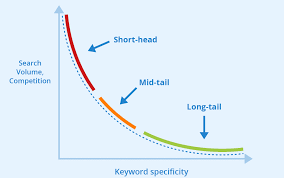How to Select a Medical Research Topic

How to Select a Medical Research Topic
In general, choosing a topic is harder than it first appears. While some teachers assign a predetermined discussion subject, most frequently let the students choose their own selections. If so, you need to have the abilities needed to create a strong medical research topic. Additionally, keep in mind that it should be constrained and intended to pique the reader’s interest.
It should, however, be sufficiently wide to offer sufficient information. Prior to choosing a topic, always make sure your final project has a rough outline. Remember that various instructors or classes may have different requirements for the format or style of research projects. These are the procedures you can follow when choosing a study subject.
Inventory brainstorming
Start by selecting a medical topic that appeals to you. If you skip this phase, you may face several difficulties before distributing your work. The majority of people in this sector fail due to ignorance or choosing the incorrect topic. Be certain you have a strong viewpoint or political argument for a certain area of medical study.
Verify if you have read any books or seen any news about the subject you have chosen. Take into account any hobbies, concerns, or personal difficulties you may have, then choose a topic you are willing to research.
For extra inspiration, it is wise to follow websites that are focused on a certain topic or field of study.
Another option is to consult the National Library of Medicine. Next, make a note of any concepts and keywords.
When selecting a topic, keep an eye out for ideas that are overdone. It’s polite to ask your teacher for suggestions if you’re stuck or need additional direction.
Continue Reading for General Information
Indeed, without reading literature on your issue, it is impossible to do it well from beginning. Obtain at least two general articles, even if they are taken from books. Reading widely provides you with an overview of certain medical research areas. As you cover a lot of ground, you learn how the concepts relate to one another and how to focus your topic. It also provides a great source for often used language in texts of this kind.
Additionally, utilize web search engines to locate webpages on various themes. Bing and Google are two of the greatest search engines. Speak with a librarian if you’re having trouble finding an article that connects to your text.
Concentrate on Your Subject
In general, pick a question that is simple to answer. A subject that is too wide or too limited is difficult to research. Pay attention to elements like the region, culture, era, discipline, or demographic group. Don’t forget to avoid picking a topic that is primarily inter-disciplinary or local. A few of these medical research subjects can overload you with useless data. Because they are local, others might not cover your topic of interest.
Compile A List Of Important Terms
Nevertheless, record every keyword that describes your subject. Put another way, keep looking for terms that best capture the essence of your subject. When reading general information and related publications, keep an eye out for these terms. To keep your search broad, it is best to identify both broad and narrow phrases, synonyms, or core concepts. Jot down these terms; they will come in handy for database searches.
Apply Adaptable Thoughts to Medical Research Topics
Most of the time, you could decide to change your topic as you go through the research process. Yes, you have no idea what is ahead. For example, you may wind up with too little information requiring full concentration or too much information requiring a limited focus.
If that’s the case, don’t worry—that’s just a component of the research. Add whatever fascinating detail you come across about your subject to the article.
In addition, you need to consider how long your project, paper, or other assignment will be. Recognize the breadth of your topic as well as the deadlines. Of course, there are consequences for turning in assignments late. These easy-to-understand characteristics let you decide when and how to change your topic.
For every topic, instructors often specify particular prerequisites. It is true that you must adhere to the given directions in order to receive a high score.
Establish the Focused Research Question for Your Topic.
You most likely begin with a specific term in your situation.




